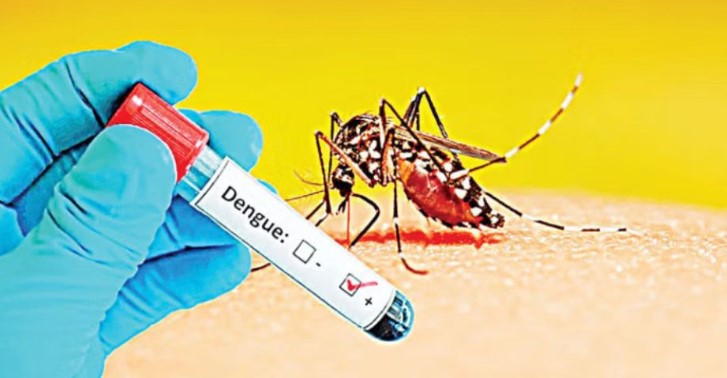However, the number of cases tends to drop in December — 730 in 2022, 375 in 2023, and 360 in 2024.
The year 2023 was the deadliest, with 107 dengue-related deaths. The death toll stood at 41 in 2022, 45 in 2024, and 20 so far this year.
Changing weather patterns behind surge
Deputy Civil Surgeon of Chattogram, Dr Tauhidul Anwar, said several factors are driving the increase in dengue cases in November.
“Dengue was once considered a seasonal disease, but in recent years it has become an endemic one in Bangladesh,” he said.
He explained that rising temperatures and shorter winters have created favourable conditions for Aedes mosquitoes to breed. “The rainy season has also shifted, now lasting mainly between July and September,” he added.
Dr Tauhidul pointed out that changes in rainfall patterns are another key factor. “Previously, heavy rain would continue for days and wash away mosquito larvae. Nowadays, we see sporadic rainfall, which leaves stagnant water in potholes — perfect for mosquito breeding,” he said.
Humidity has also increased significantly, he noted. “In November, humidity used to be around 70–75 percent, but now it often reaches 90–95 percent. This, too, helps mosquitoes thrive.”
Hotspot areas and hospital situation
The Civil Surgeon’s Office has identified 25 dengue hotspots across Chattogram city, including Bandar, Chittagong Export Processing Zone (CEPZ), Halishahar, Kotwali, Bayezid Bostami, Pahartali, Kattoli, Khulshi, Double Mooring, Lalkhan Bazar, Agrabad, Chandgaon, Dewanhat, Anderkilla, Muradpur, and Sadarghat areas.
Most of the dengue patients are being treated at Chattogram Medical College Hospital, Chattogram General Hospital, and private clinics.
Dr Ekram Hossain, acting superintendent of Chattogram General Hospital, said 15 dengue patients were admitted on Monday. “Many patients come to the hospital late, which makes their condition critical. They should seek medical attention as soon as warning signs appear,” he said.
Chief Health Officer of Chattogram City Corporation, Dr Imam Hossain Rana, said city workers regularly spray mosquito repellents and larvicides in different areas. “Residents must also remain alert and ensure that water does not accumulate around their homes,” he added.


















